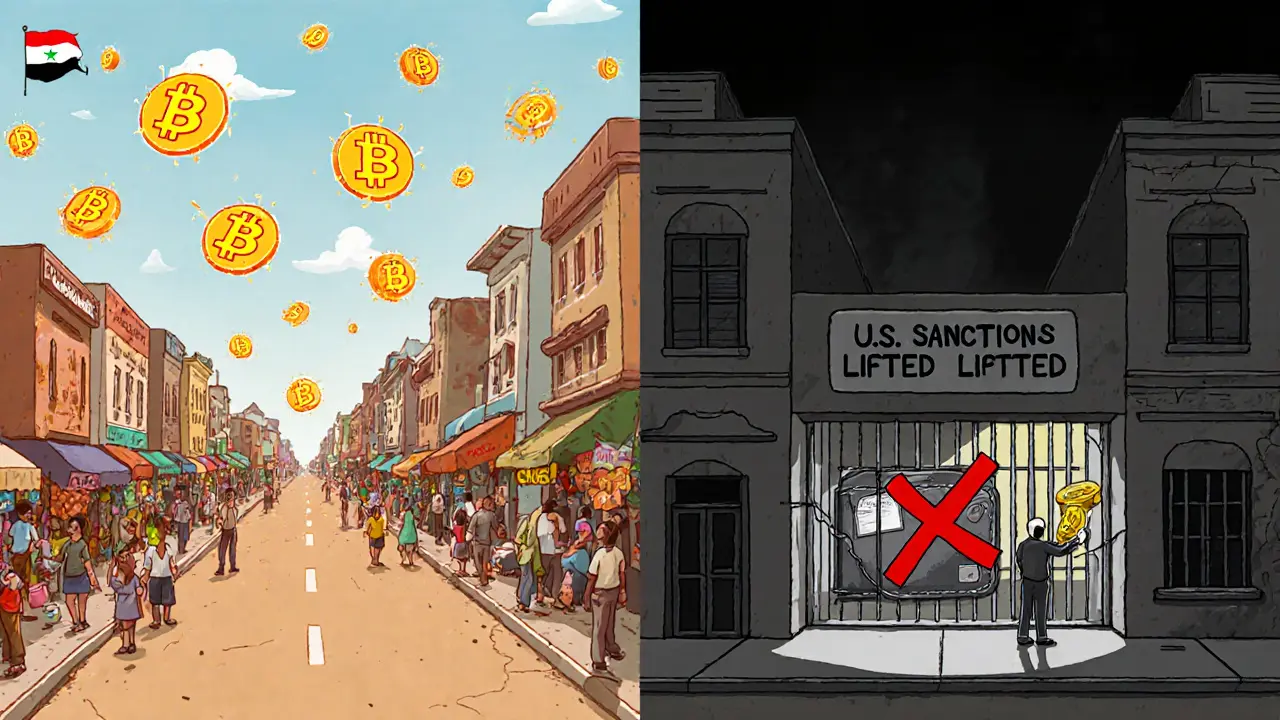Syria Sanctions and Crypto: What You Need to Know About Restricted Transactions
When we talk about Syria sanctions, economic restrictions imposed by the U.S., EU, and other nations to limit financial support to the Syrian government and associated entities. These rules don’t just apply to banks—they extend to digital assets, exchanges, and even wallet addresses tied to sanctioned individuals or regions. If you’re in or connected to Syria, using crypto isn’t just risky—it could land you in legal trouble, even if you’re not involved in politics. Many exchanges now automatically block users from Syria, not because they want to, but because they’re forced to by international compliance laws.
Asset forfeiture, the legal seizure of cryptocurrency by governments when linked to illegal activity or sanctioned parties. This isn’t theoretical—countries like the U.S. have seized over $17 billion in crypto since 2020, and Syria-related transactions are a growing focus. Even if you bought Bitcoin legally, if your wallet ever interacted with a known sanctioned address, your funds could be frozen. Privacy coins like Monero, a cryptocurrency designed to hide transaction details and protect user identity are under extra scrutiny because they make tracking harder. Regulators don’t ban them outright, but exchanges that list them face heavier audits.
Crypto sanctions, the application of financial restrictions specifically to digital assets are becoming more precise. Tools like Chainalysis and Elliptic help governments trace crypto flows to Syrian-linked wallets, even if they’re routed through third countries. That means using a VPN or buying crypto on a foreign exchange won’t always protect you. If your IP, device fingerprint, or transaction pattern matches known risk indicators, you’ll get flagged—even if you’re just a regular user trying to send money to family.
What you’ll find in the posts below aren’t abstract theories. They’re real cases: exchanges that shut down Syrian accounts, wallets that got frozen after a single transfer, and the hidden costs of using unregulated platforms in high-risk regions. You’ll see how Russian crypto risks, the legal dangers faced by citizens using unlicensed exchanges under international sanctions mirror what’s happening in Syria. You’ll learn why platforms like Blockfinex and SkullSwap are dangerous for users in sanctioned areas—not because they’re evil, but because they lack the compliance tools to stay open. And you’ll see how asset forfeiture isn’t just a U.S. thing—it’s a global trend, with countries like Angola banning mining to control energy use, showing how tightly finance and regulation are now linked.
There’s no magic workaround. If you’re affected by Syria sanctions, the safest path isn’t finding loopholes—it’s understanding the rules, avoiding risky platforms, and knowing what gets flagged before you send a single coin. The posts here give you the facts—not the hype—so you can make decisions that won’t cost you your funds or your freedom.
International Sanctions and Crypto Restrictions in Syria and Cuba in 2025
In 2025, the U.S. lifted long-standing sanctions on Syria but tightened them on Cuba, creating wildly different outcomes for cryptocurrency use in both countries. Here’s what it means for traders, businesses, and compliance.
